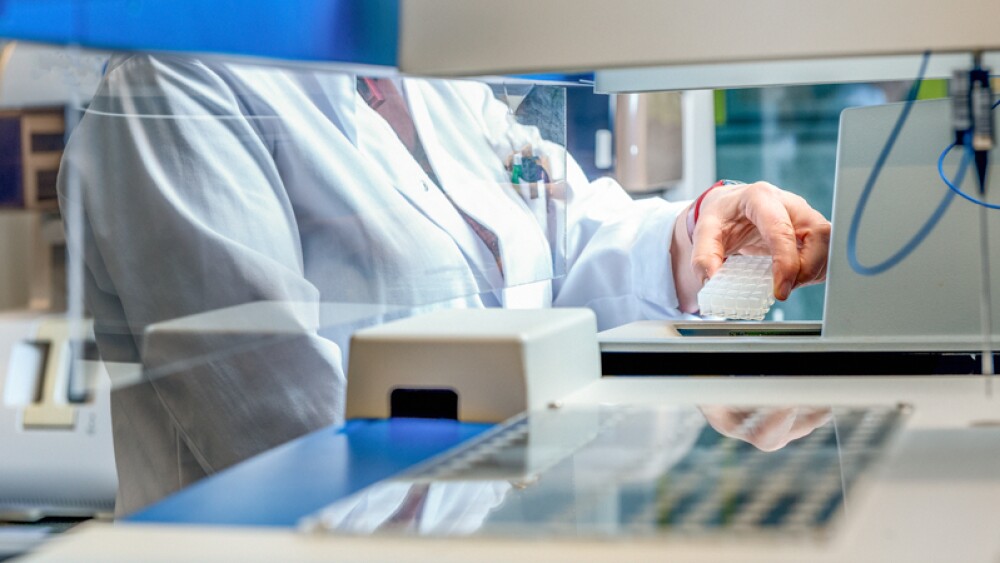May 8, 2017
By Mark Terry, BioSpace.com Breaking News Staff
Boston-based Intarcia Therapeutics may be a biotech company to watch. In February, the company announced that the U.S. Food and Drug Administration (FDA) had accepted its New Drug Application (NDA) for ITCA 650 for active review.
ITCA 650 is designed to be a once or twice-yearly treatment for chronic type 2 diabetes. It utilizes the company’s Medici Drug Delivery System. In its Phase III clinical trials for type 2 diabetes, it was evaluated while delivering a continuous and consistent drug therapy in a three-month initiation dose, which was then followed by consecutive six-month doses.
The active ingredient in ITCA 650 is exenatide, a glucagon-like peptide-1 (GLP-1) receptor agonist that is presently marketed worldwide as twice-daily and once-weekly self-injection for type 2 diabetes. If the product is approved, ITCA 650 would be the first and only injection-free GLP-1 receptor agonist therapy.
Currently a private corporation founded in 1997, Intarcia to date has raised $1.26 billion in 12 equity rounds from 18 investors. Investors include the Bill & Melinda Gates Foundation, Baillie Gifford, RA Capital Management, New Leaf Venture Partners, GGV Capital, Venrock and others. The company’s chief executive officer, Kurt Graves, has indicated he hopes to takes the company public.
The company’s Medici Drug Delivery System uses a matchstick-sized osmotic mini-pump that is placed under the dermal layer of the the skin. It delivers a continuous and consistent flow of medication.
In September 2015, Intarcia acquired Phoundry Pharmaceuticals. Phoundry was part of the Enteroendocrine Discovery Performance Unit of GlaxoSmithKline .
Last July, Intarcia moved into a new 39,000-square-foot headquarters in the Fan Pier building on the South Boston waterfront. It is next to Vertex Pharmaceuticals , where Intarcia’s chief executive officer, Kurt Graves, worked pervioiusly.
Approximately 100 of the company’s staff works in the building. Another 200 are located in Hayward, Calif. and Durham, North Carolina.
Max Stendahl, writing for the Boston Business Journal, notes that the new headquarters had a key design motif, which is a nod to the company’s corporate motto, trying to unlock medical breakthroughs. “A reception area on the main floor features a massive, 15-feet-by-5-feet video screen for company meetings, as well as a rotating display case with the mini-pump technology. Open seating and removable glass walls are designed to maximize natural light, allowing panoramic views of Boston harbor.”
“The design of our headquarters realizes our desire to create a state-of-the-art workspace for our rapidly growing team,” said Ed Daily, company spokesperson, to the Boston Business Journal. “We feel it really makes a unique impact because it captures the excitement of our team’s work and our very own purpose and values.”
In January of this year, Intarcia inked a strategic research collaboration with the California Institute for Biomedical Research (Calibr). They will work together to develop a novel peptide therapeutic using Calibr’s Stapled-Peptide Platform Technology. Intarcia plans to develop and administer it in combination with Exenatide, the active ingredient in the ITCA 650.
Under the deal, Calibr received an upfront grant of Intarcia equity, with additional shares vesting over key development milestones. There are also undisclosed cash payments on regulatory and sales milestones. Calibr will also be eligible for tiered royalties on any product sales.
Graves said in a statement, “We are committed to disruptive innovation leveraging our proprietary Medici Drug Delivery System and we now have several combination products in our pipeline that we believe we can uniquely optimize and deliver in a once- or twice-yearly mini-pump. We’re excited to advance a combination program with Calibr that is targeting significant advances for patients suffering from type 2 diabetes and obesity.”





